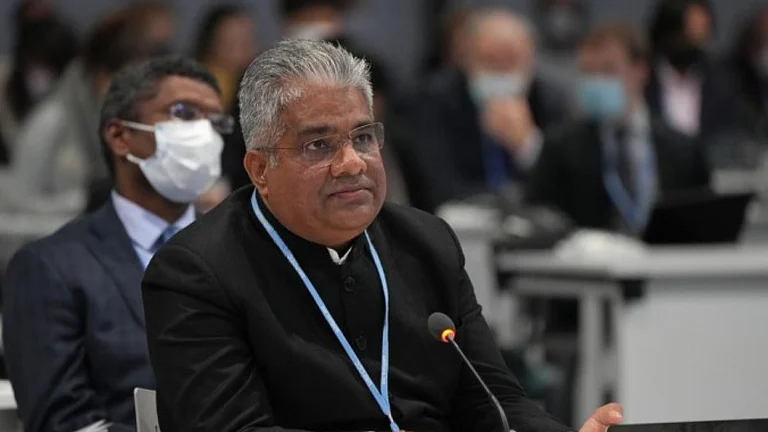India's climate policy architecture is dedicated to securing the right of 140 crore citizens to clean energy, Union Minister of Environment, Forest and Climate Change, Bhupender Yadav said on Thursday. He emphasised that the pathway for India as an emerging economy is about building a robust economy which is in sync with the ecology.
Addressing the Annual Business Summit 2025 hosted by the Confederation of Indian Industry (CII), the minister highlighted the three imperatives that govern the country’s climate initiatives as an actor in the global climate arena and as the voice of the Global South: self-reliant circular economy, protecting natural ecosystems and strengthening resilience and promoting adaptation. “India's unique climate policy architecture successfully balances developmental imperatives with ambitious climate goals,” Yadav added.
According to the Economic Survey 2025, the Mission LiFe-related activities can save nearly $440 billion globally by 2025. “The introduction of green, static, loose and ambitious life is another innovative initiative that is built around incentivising voluntary action toward environmental conservation,” the minister said.
However, he identified the country’s success in building resilience and economic adaptation as the most significant contributor to its growth and recognition in the global sustainability space. “In any climate discourse, it is important to understand that India believes and advocates for the principle of equity and common but differentiated responsibilities (CBDR) and respecting capabilities,” India realises that climate considerations can take a toll on its economy, in terms of resources, socio-economic growth and land-use productivity, the minister noted.
“As a major climate policy contributor and as the voice of the global south, India continues to advocate for CBDR on multilateral terms. With the increasing incidence of extreme weather events, such as heatwaves, heavy rainfalls and cyclones, India, like most countries, faces growing climate-related risks,” the minster stated. India ranked 6th on the global climate risk index in 2025.
To address climate change-related risks and build the country's resilience, the government recently released a draft framework for Climate Finance Taxonomy. “By detailing the methodology for classifying activities, projects and measures under adaptation and mitigation, the taxonomy will contribute to India's climate commitment, strengthen resilience, and build and facilitate innovation,” the environment minister said.
India is also investing in adaptation solutions and technologies that reduce the risk of adverse impacts of climate change, he added.
Going ahead as the government focuses on strengthening adaptation, it will create an inclusive roadmap in the form of a national adaptation plan. This is to be submitted to the United Nations Framework Convention on Climate Change in a few months. He further said that the plan is based on the pillars of enhancing adaptive capacity, strengthening knowledge systems and reducing exposure to climate risk.































